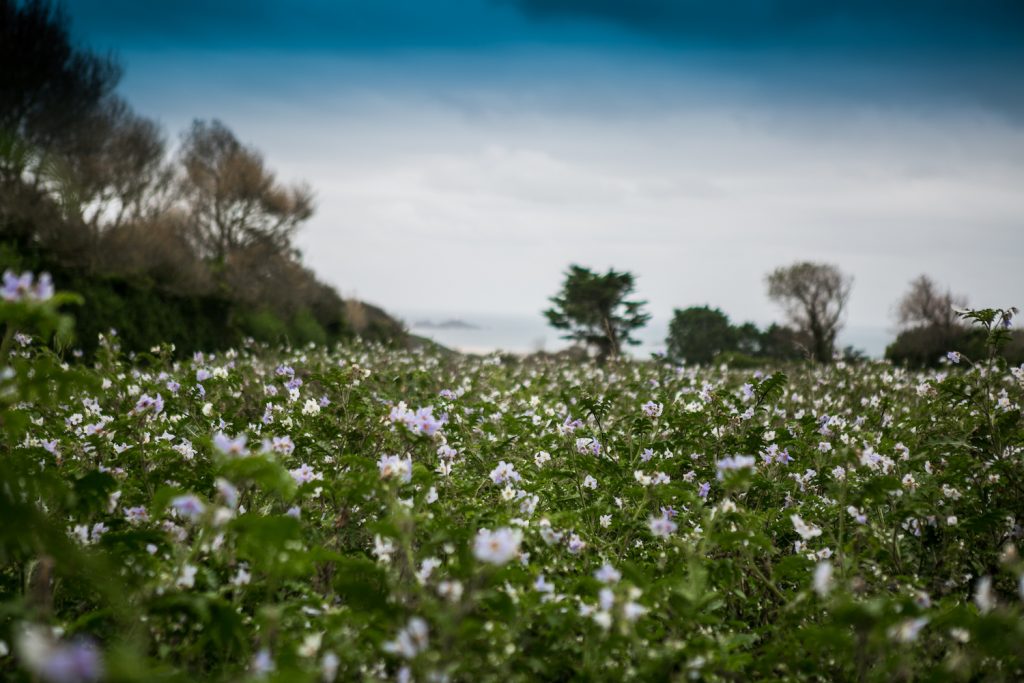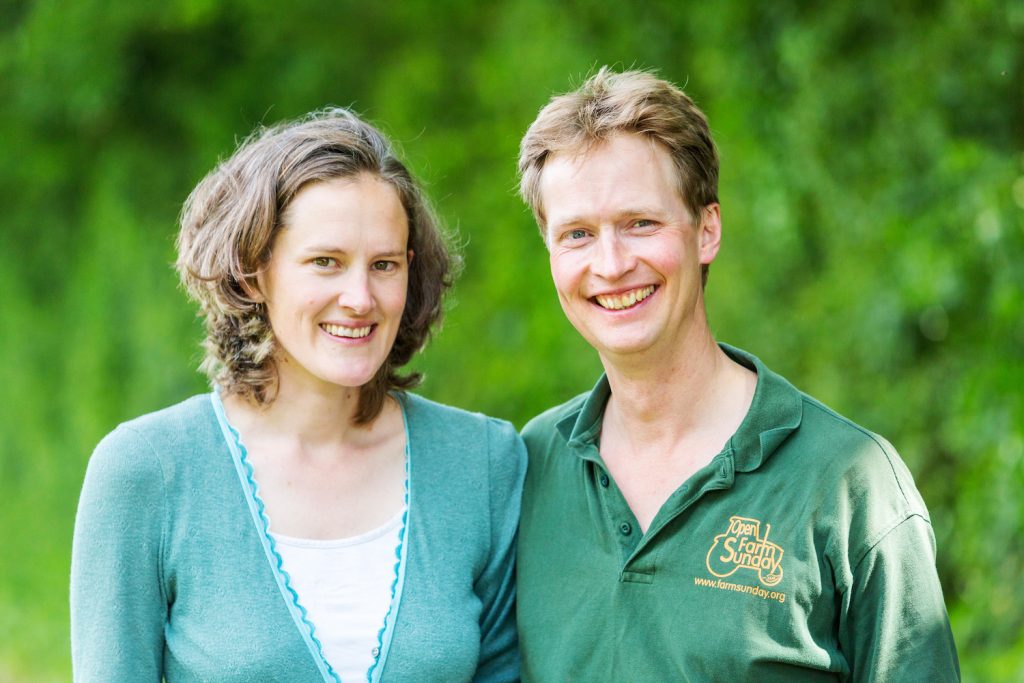Farmers given LEAF demo farm status for sustainability
30th June 2020
Sustainable farming organisation LEAF (Linking Environment and Farming) has recently welcomed two new demonstration farms, recognising them as centres of excellence for sustainable farming.

Prickly Potato is one of the most successful crops used to tackle potato cyst nematode at the Jersey Royal Company.
Sustainable farming organisation LEAF (Linking Environment and Farming) has recently welcomed two new demonstration farms, recognising them as centres of excellence for sustainable farming.
The Jersey Royal Company and Nonington Farms in Kent have become the 40th and 41st LEAF demonstration farms respectively.
Nonington Farms
Award-winning arable farmers, Emma and James Loder-Symonds, of Nonington Farms, own 161 hectares and contract farm for a number of other businesses.
In their winter barley field, they used KWS Amistar, a BYDV tolerant variety, to reduce the need for pesticides in autumn, benefitting the environment and saving money.
Sitting in a field of spring oats, Emma explained that last year it had been wheat and they drilled a mustard cover crop to keep cover until it was dried in early spring, while in the field next door the wheat was cut and left as overwintered stubble. Owing to the tap route from the mustard, they were able to drill the wheat a week early despite the incredibly wet weather last year, as the tap route had already done the cultivation work.
The farm’s Rogator Fendt sprayer with 36m boom width is linked to a satellite RTK so that they use only as much chemical as they need.
Meanwhile, insulation in the grain tunnel has saved them around 20 per cent in gas bills.
Moving onto the OSR field, James explained that they use companion cropping, with a clover seed planted in the first week of September, to tackle flea beetle problems and the OSR had clearly established well.
A wildflower meadow was also planted in a previously arable field that was deemed unproductive, so James says it was put into a stewardship scheme instead. The farm’s carbon footprint has been dramatically reduced by planting 10ha of woodland a year.
Emma also demonstrated a corridor for wild bird cover which was recently drilled and runs from the top of the field where there are grass margins and other plots right down to the bottom where there is woodland. There are at least five types of seed to benefit a variety of birds.
She explains that it has been “hugely beneficial” to the farm: “It completely breaks up what would otherwise be a mono culture of one big field, especially as this is spring crop this year, there could have been nothing else for them to create the cover.”

Award-winning arable farmers, Emma and James Loder-Symonds, of Nonington Farms, own 161 hectares and contract farm for a number of other businesses.
Jersey Royal Company
The Jersey Royal Company, which was also given demo farm status and is the largest farmer on the island with 1,800ha, has worked closely with local businesses and the Jersey government to improve perceptions of farmers and benefit the environment.
William Church and Mike Renouard of JRC explained that integrated farm management is a real driver for the company, with soil sampling a key part of their continued learning. They use a quad bike and GPS system to map out all 1,800 fields so they can sample and test the soil in their own on-site laboratory for potato cyst nematode, which is a “constant battle”.
Two of the most successful crops used to tackle nematodes are Hot Mustard and Prickly Potato. Hot Mustard is quick to establish and provides a great habitat for a number of species, as well as being a food source for pollinators. The crop is incorporated back into the soil, adding vital biomass and releasing a gas that kills the remaining PCM in the soil. Prickly Potato is best used as a break crop, he added, and while it can be more difficult to establish, also provides good soil structure and a habitat for wildlife.
Jersey has high nitrate issues, causing algal blooms and William says with potatoes being a nitrogen hungry crop there is “undoubtedly” some run-off, so they placed fertiliser prills in the rows in the growing zone around the seed potatoes, which has significantly reduced inputs, as they no longer spread on internal headlands or the extremities of the fields, which has been a “great win”, he says.
JRC has also worked as part of a collaborative effort to facilitate changes to hedge and bank cutting to help wildlife, and come up with recommendations for chemical use and slurry spreading on the island.
They work with the island’s dairy farmers on land swaps and sow maize for them, as shipping costs for additional feed to the island are expensive. The farm is also working with a local business that produces CBD oil, as well as planting pollinator mixes for the local bee keepers. All their cover crops have a part to play in improving soil structure, water management, and providing biomass and habitats.
